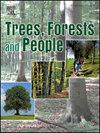森林疗法的社会经济层面:对人类福祉和可持续森林管理的贡献
IF 2.7
Q1 FORESTRY
引用次数: 0
摘要
森林提供各种生态系统服务,以各种方式为人类福祉做出贡献。在土地使用压力、城市化和自然退化的时代,社会对森林疗法的需求日益增长。虽然与自然相关的疗法以及自然对健康和幸福的有益影响在亚洲等文化中是一个古老的概念,最近在欧洲也是如此,但森林疗法在森林休闲景观中正日益占据主导地位。本评论文章介绍了亚洲和欧洲最近推出的森林疗法和研究,重点关注森林的治疗效果,并研究其基本原理、做法和现状。我们特别阐述了森林疗法在促进人类健康和可持续森林管理方面的社会经济潜力。根据对森林疗法的提议和研究进行的范围审查,我们发现日本和韩国等国家在森林疗法提议和相关研究的专业化方面领先于欧洲国家。虽然证明森林对健康有益的研究越来越多,但人们对森林管理方法与森林和健康政策之间的联系还缺乏了解。缺乏社会经济评估阻碍了将森林疗法成功纳入政策框架,也阻碍了将森林疗法用作替代林业产品或预防性医疗。为使森林疗法成为林业产品组合的一部分和医疗替代品,我们建议:-采用跨学科研究方法和新的行为者联盟,将社会对森林疗法的需求与森林管理和医疗健康研究的见解联系起来;-采用跨学科研究和多行为者方法,将森林和医疗研究的见解与从业人员的森林管理、服务设计和沟通技能联系起来;-确定森林疗法的权衡和冲突潜力,例如与木材生产或树枝坠落造成伤害时的保险问题有关的权衡和冲突潜力、承认森林疗法是林业产品组合的明确组成部分,也是临床治疗的替代医疗方案。本文章由计算机程序翻译,如有差异,请以英文原文为准。
The socioeconomic dimension of forest therapy: A contribution to human well-being and sustainable forest management
Forests provide a variety of ecosystem services that contribute in various ways to human well-being. In times of land-use pressures, urbanisation, and nature degradation, the societal demand for forest-based therapeutic uses is increasing. Although nature-related therapies and the beneficial effects of nature on health and well-being are an old concept in cultures such as Asia and, more recently, Europe, forest therapy offers are increasingly taking hold in the forest recreation landscape. This Commentary paper identifies recent forest therapy offers and research in Asia and Europe that focus on the therapeutic effects of forests and examine their underlying rationales, practices, and status. In particular, we elaborate the socioeconomic potential of forest therapy to contribute to human health and sustainable forest management. Based on a scoping review on forest therapy offers and research, we found that countries such as Japan and South Korea are ahead of European countries in the professionalization of forest therapy offers and respective studies. While the number of studies that demonstrate the positive health benefits of forests are increasing, there is a lack of understanding the link with forest management approaches and forest and health policies. A lack of socioeconomic evaluation hinders its successful integration into policy frameworks, and prevents its use as an alternative forestry product or preventive medical treatment. For forest therapy to become part of the forestry portfolio and a medical alternative, we recommend:
- •Interdisciplinary research approaches and new actor alliances that link societal demands for forest therapy with insights from forest management and medical health research,
- •Transdisciplinary research and multi-actor approaches to link insights from forest and medical research with practitioners’ skills for forest management, service design, and communication,
- •To identify trade-offs and conflict potentials with forest therapy, for example in relation to timber production or questions of insurance in case of injuries by falling branches etc., that allow to develop integrated and sustainable solutions,
- •Policy backup and economic support for forest managers and owners to compensate for their efforts to manage their forests for therapeutic purposes
- •Recognition of forest therapy as an explicit part of the forestry portfolio and an alternative medical offer for clinical treatments.
求助全文
通过发布文献求助,成功后即可免费获取论文全文。
去求助
来源期刊

Trees, Forests and People
Economics, Econometrics and Finance-Economics, Econometrics and Finance (miscellaneous)
CiteScore
4.30
自引率
7.40%
发文量
172
审稿时长
56 days
 求助内容:
求助内容: 应助结果提醒方式:
应助结果提醒方式:


